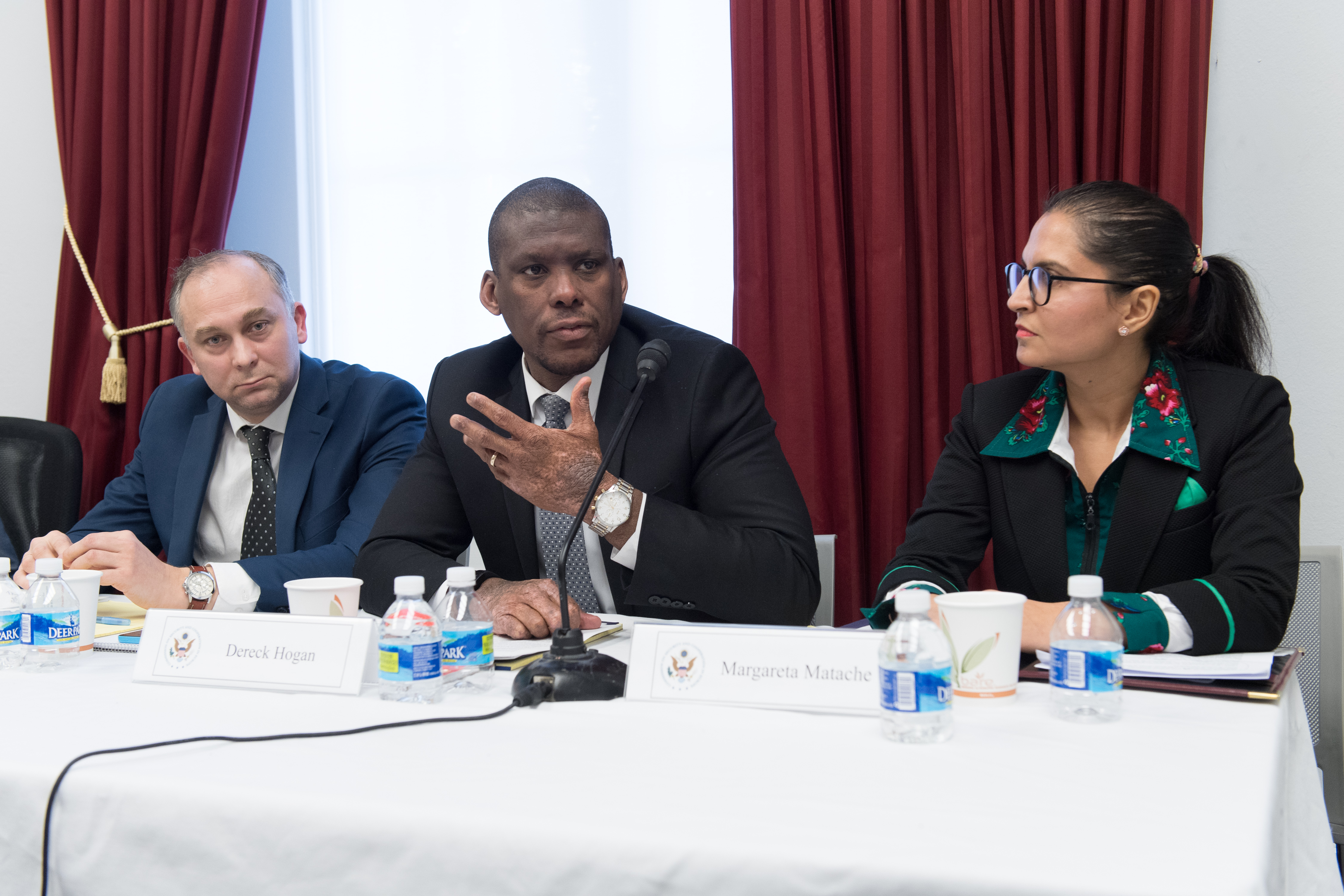The critically acclaimed Romanian film “Aferim!” (Bravo!), directed by Radu Jude, is the first Romanian film to depict the enslavement of Roma in 19th century Romania. Set in 1835 Wallachia, a southern region of what is today Romania, the film’s plot follows a policeman, Costandin, and his son Ionita, who are hired by a nobleman to find a Romani slave who has run away from his estate after having an affair with the nobleman’s wife. As the protagonists travel along the wild stretches of the Romanian countryside, they encounter vivid archetypes of Romanians. With strong emphasis on class divides, the film portrays the stark contrast between the enslaved Roma, Romanian peasantry, and the all-powerful nobility. The film’s remarkable level of detail reflects the use of historical documentation, contributing to a gripping portrayal of Romanian society into which one is quickly immersed.
Following the film, Erika Schlager, Helsinki Commission Counsel for International Law, moderated a discussion with Dr. Margareta Matache, Cristian Gaginsky, and Dereck Hogan who each offered unique perspectives into how “Aferim!” serves as both a remarkable piece of cinema, and as an important educational tool on the much neglected issue of slavery in Romania and its lasting impact. Cristian Gaginsky, Deputy Chief of Mission for the Romanian Embassy, outlined the measures undertaken by the Romanian Government to improve the situation of Roma in Romania, as well as the need for a broader level of global awareness on Romani issues. The discussion then passed to Dereck Hogan, Director of the Department of State’s Office for Central Europe. Noting that the United States shares the ugly legacy of slavery and the continuing struggle to address its lasting impacts on our society, politics, and culture, Hogan described State Department engagement on Romani issues and a common goal of preventing acts of discrimination. Finally, Dr. Margareta Matache, a leading Romanian Romani activist and scholar currently at the FXB Center for Health & Human Rights at Harvard University, emphasized the education is one of the most powerful tools that can dismantle power relations and poverty. At the same time, she added, “[w]e need to focus more on anti-Romani racism in schools. I think that children, both Romani and non-Romani children in Romania, need to know what slavery meant for our country and how we can overcome, how we can create solidarity with Roma, and how we can actually have more responsibility for the common past of our country.”







